I meet so many cool moms! This series gives them a chance to share their stories – to inspire others and to sometimes give us all a chuckle.
Parenting is not for cowards and parenting abroad can be next level. If you want to share your story, please get it touch with me. I’d love to feature you.
June has experienced much grief and loss in the last few years. She is now ready, for the first time, to share her story. The time is right for her and perhaps someone needs to hear her message now. It is a story of sadness and loss but also of hope and new beginnings. I am absolutely honored that she has chosen this space to share.
June shares how important community and support were and are for her healing process and how with these we can work through the hard things, while never forgetting but learning to cherishing the good. If you are experiencing loss and grief, or are feeling sad, please reach out. You can contact June, Anna or one of the online resources I’ve compiled.
June's Story
How did you get to where you are today?
Tell us a little bit about yourself and your family.
I am originally Japanese, born and raised in the UK. My background is in Human Resources Management, Languages and Psychosocial interventions. After my university studies, I decided to travel and work abroad using my languages and people skills. I have since lived in over 10 countries as an expat, expat spouse and currently, based in Berlin as an HR Consultant, Coach & Mentor.
Today, I am a widow, a proud single mum and a breast Cancer fighter.
What did you want to be “when you grow up”? How is that different from today’s reality?
As a child, I was somehow drawn to people in need, be it the homeless, the disabled, immigrants and refugees. After backpacking and volunteering in the Middle East and Central America, I witnessed poverty and social injustice. These experiences moved me as such that I wanted to dedicate my professional career in humanitarian aid work. I worked with local and international NGOs, the international Red Cross and a few years with the UN.
After the tragic loss of my late husband and cancer diagnosis end 2018, I decided to settle in his homeland, Germany, to start a new life with my 9 year old daughter. Due to my health, I had to learn to slow down, rest and ended up taking a long 2 year personal sabbatical, to grieve, to heal, to reflect and to figure out what next. I knew I wanted to continue helping people and decided to set up my own business as an HR Consultant, Coach & Mentor. The business is still in the making but the process has been a great learning journey to explore and figure out how best to shift the focus on what matters to me.
I discovered my skills, strengths and passion on Mental Health in the workplace and psychosocial support through Coaching and Mentoring would be a good start. I hope I can extend my support to fellow single parents and widow/ers who may have also experienced a loss during their time abroad.
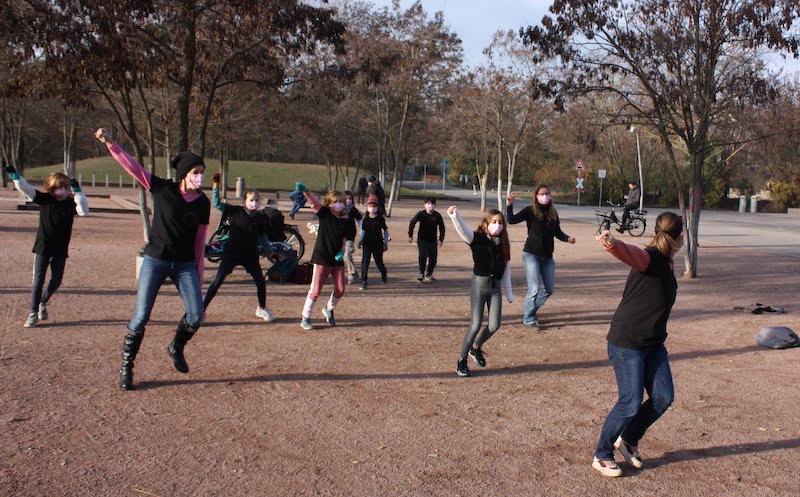
How do you spend your days?
I try to start with Yoga and meditation. I discovered Qigong and Taichi and love how it energises the whole body flow. During lockdown, my focus shifted to home schooling and more time for learning and experimenting new activities and new habits.
Through the amazing support network “Here we are Germany”, I’ve been given the opportunity to test out my ideas through my Job hunting Mindfully Workshops and have built a small clientele for Coaching and Mentoring. The support network and the wonderful ladies in our team, including Anna, have renewed my sense of confidence and work fulfilment, which I missed during these years I was not working.
What is something you recently learned that really surprised you?
The 2 year sabbatical has been the most intense and challenging period in my life, but at the same time, the most enriching and self-inspiring time of my life. The tragic loss and illness have taught me how life can be cut short anytime and how TIME is so precious. We will all one day leave the planet and I want to make the best of every moment we have, in good health with the people we love and care for.
What advice would you give your younger self?
Let your passion and inner child drive your determination to turn the impossible to possible. Think big and look at the bigger picture, take a step back and see what new perspectives and meaning you can add to your life.
What was the best advice you ever got?
Happiness is all about the small moments and all the things you can’t buy with money, such as ‘Family, Friendship, Love and Health’ – Quote by my wise mother
What do you do for yourself? How do you make time to do it?
I apply the 3Ms to help me thrive and practice resilience;
Movement: walk, stretching, Qigong, Taichi.
Meditation: Loving Kindness Meditation and Self-Compassion, to remind me that life is hard, but I am doing my best. I don’t need to be perfect because I am good enough for who I am today.
Music: Music is so powerfully healing. I picked up my guitar after 20 years and started playing, singing and surprisingly wrote a few songs during my dark days. I’ve now invested in guitar, singing and song writing lessons to help me unleash my creativity.
What element (of your culture) do you wish to pass on to your kids and how do you do it?
We create our own traditions, such as Sunday pancake, breakfast in bed during special occasions. Since we are in Germany, we started introducing German traditions such as Easter egg hunt, St. Nicholas and Christmas dinner with Goose a Christmas cracker from England we pop before the meal.
Raising Kids Abroad
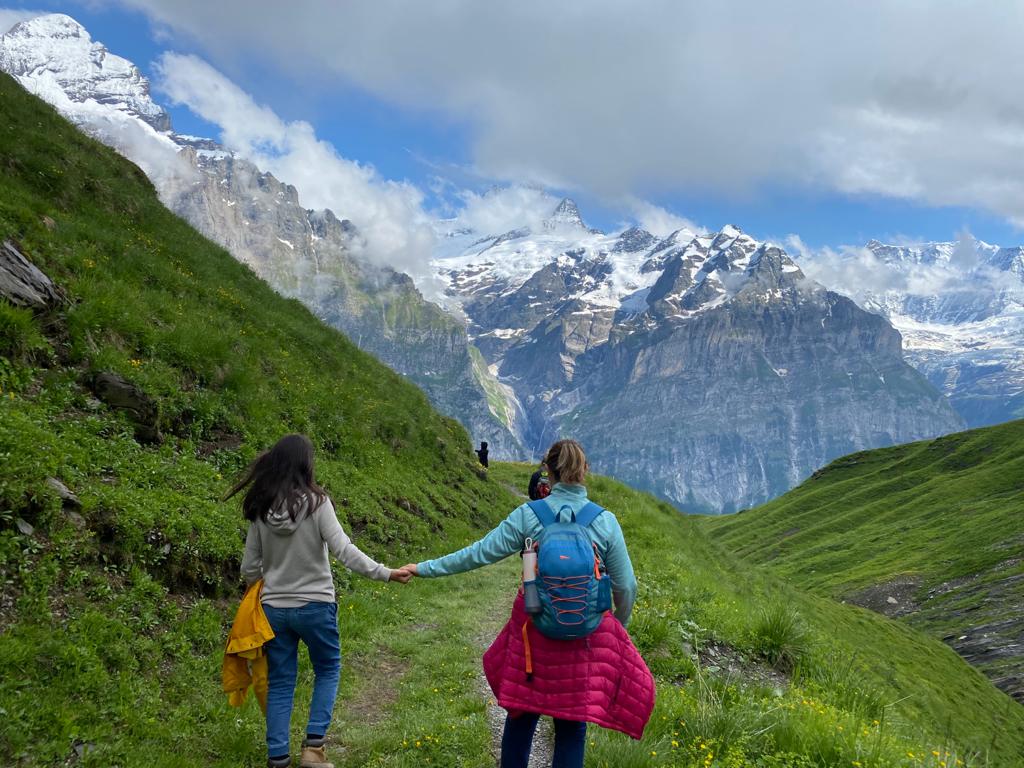
When did you first hear the term Third Culture Kids (TCKs) or Cross Cultural Kids (CCKs)? What did you think of it?
I read the book ‘Third Culture Kids’ by David C. Pollock and Ruth E. Van Reken for my dissertation on ‘The emotional and psychological impact of accompanying spouses on the move’. After having left a 15 year career to follow my husband to Kosovo, I lost self-confidence and sense of belonging. I wanted to understand if this was only me or happening to other spouses. I interviewed a handful of male and female spouses and presented my findings in my final paper. It continues to serve me as a great resource in my work as a Mentor to support expat spouses who find themselves in the same situation where I was.
When and how did you realize you were raising a TCK/CCK? What changed for you?
I always struggled to decide how to behave British or Japanese and realised I didn’t feel neither one nor the other. I was once called a banana -Yellow on the outside and white in the inside and was bullied at school in Japan, because I spoke English without an accent and dressed differently from the rest of the kids. I experienced a reverse culture shock returning to England and found the re-adjustment much more challenging than I had expected. I grew up living an identity crisis into my early adult years and wish I had read this book or been informed about the TCK/CCK phenomena earlier on. I take great learning from this and try to create as much awareness with other cross-cultural families.
What’s the one thing you are thrilled your children will have or be by growing up as TCKs/CCKs?
The multi-linguistic skills and the open-minded mindset I hope will continue to grow from our travels and moves around the world.
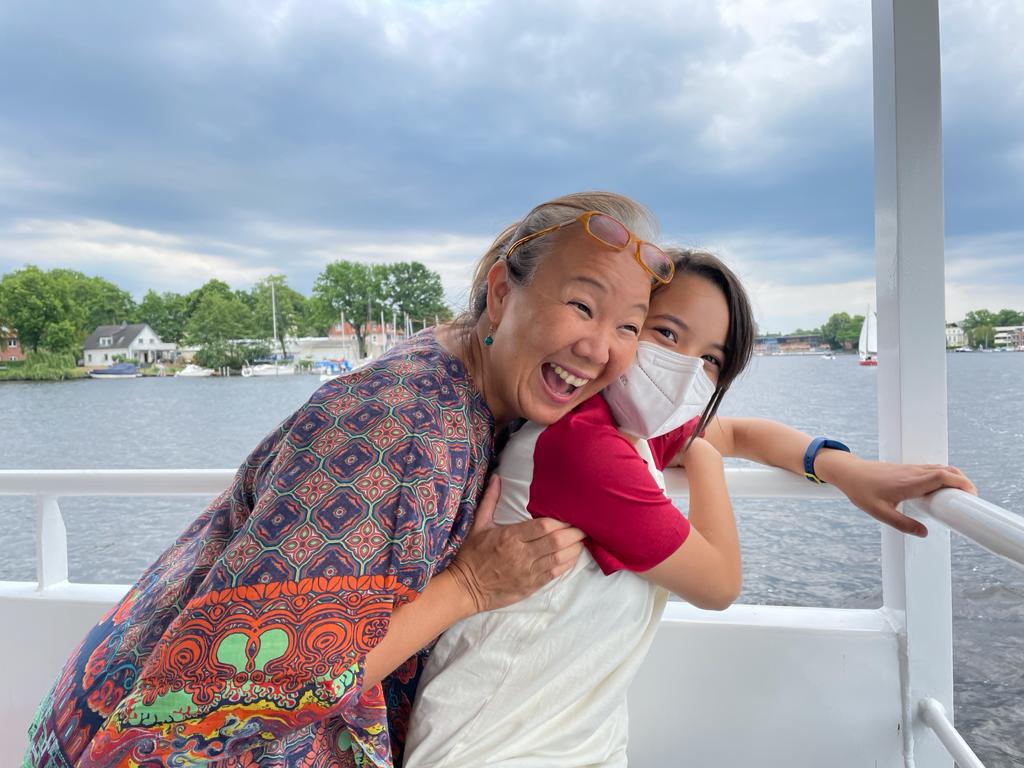
What’s your biggest mobile-family-related parenting challenge?
My daughter already experienced 4 moves in 8 years and is now at an age where she wants to be rooted back ‘home’ with her friends in Berlin. She’s at an age where peer pressure counts and making another move would be too disruptive. For this reason, I decided to start all over in Berlin, to regain a sense of stability for the first time.
What worry around parenting/your kids keeps you awake at night?
Having experienced a tragic loss and living with cancer, my fear is ‘what if… something tragic happens to me or if cancer takes my life sooner than expected. I worry for my daughter and try to prepare for every eventuality, with an amazing army of support around us.
What have you added to your parenting from another culture (mindset, style, systems…) or how has your parenting changed by living in other places?
To make sure we have contact with local people and the local culture, as we can easily get used to the expat bubble way of life.
What was the best parenting advice you ever got?
During my first cancer treatment, my onco-psychologist advised me to stay truthful and honest to my daughter, even if it is bad news. Children can tell if parents are hiding or lying. This can create fear and break the trust and bond in the relationship and have an adverse impact to their psychological development.
At first, I kept the illness from her as a way to protect her, but now, I talk to her openly, about nearly everything and even got advice on difficult decisions I had to make. She anchors me and without her, I would not be the same person I would be today.
Leading a Globally Mobile Life
Do you have a favorite food or drink from your time abroad that has become a family staple?
Suçuk Cheese Tost – Turkish spicy salami and cheese made in a Toast machine, sprinkled with olive oil, salt and oregano, accompanied with black olives and Turkish black tea. A regular weekend breakfast my late husband used to make for us.
Share a traveling-with-kids moment - crazy, scary, heartwarming, got lost, best trip ever...
When we left Kosovo after 4 wonderful years, we drove through the border into Macedonia and showed 3 passports; German, UK and Japanese. The border control officer looked puzzled and confused. We said in Albanian ‘3 passports, 1 family’ and smiled. A beautiful way that summed up our colourful family
What country or place is still on your destination bucket list and why?
I started making a general bucket list of things to do. Last year, I organised a Flashmob for Cancer, with kids and parents during Lockdown. I am working on my next bucket list challenge, to busk on the street with my guitar and sing until I reach10 Euros. I turn 50 next year and want to prove to myself that age should never get in the way of doing the things we love!
What advice would you give families setting out on their first expat adventure?
Sense of belonging and connection through a support network is key, to know that you are NOT alone and that you can feel heard, understood and supported as well as to know you can support others. No one should ever have to face the feeling of loneliness and loss of identity like I did. Finding a community with like minded people can make a great difference and the experience living abroad much more positive and enjoyable. We also learn and grow during these experiences, which need to be talked about more and brought to the surface as recognition to our selves, our working partner and the company that sends us abroad.
What does no one ask you about but you’d love to talk about? Now’s your chance:
I’ve learnt to embrace grief and illness with hope and optimism and it’s been important for me, not to focus only on the sadness and suffering, but to remember to highlight the positives that have come out of my experience.
Every personal tragedy, be it small may be faced with closed doors but believe me, new doors do open, with opportunities that unleashes our strength and potential we all have inside us. With practice, we learn to develop resilience, personal growth, courage and creativity. This new life has given me a chance to push the ‘Reset’ button and have a second chance in life!
Where to find June:
My website is still in the making, but you can connect with me or ask about my Coaching & Mentoring services via Linkedin.
As a focal point for Berlin with Here We Are Germany, you can also contact me via https://www.hereweareglobal.com/country-page-template-2-1-1


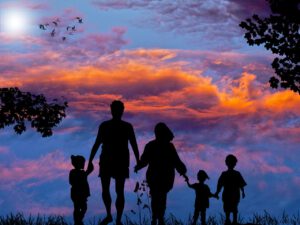
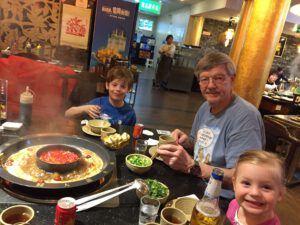
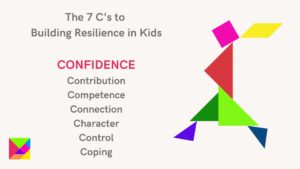
I will join you busking guitar on a street one day. We’ll sing なごり雪 together. So many things have happened and so much have changed but our friendship never changes no matter where you are no matter..